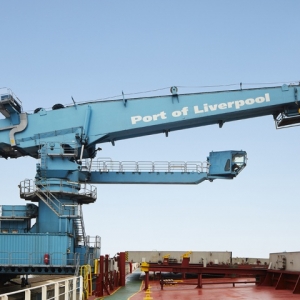


(Posted on 09/10/19)
The shipping heritage of Liverpool City Region (LCR) could provide a major boost to the UK’s economic prospects post-Brexit according to a major new report.
Mersey Maritime, working with Maritime UK and the Centre for Economics and Business Research (CEBR), commissioned the report to determine how important the region’s maritime industry is to the national economy and the LCR.
The report found that the maritime sector clustered around the Mersey directly drove just under £2.0 billion in domestic output through business turnover in 2017. Compared to 2010, LCR’s domestic output levels across the sector have grown by 118 per cent – approximately £1 billion.
It also produced £650 million in GVA and 7,899 jobs in the LCR in 2017, making it the UK’s stand out region compared with a national report published last month by Maritime UK.
LCR also outperformed the UK average GVA per employee. In 2017, LCR maritime productivity stood at £81,461, while the UK average sat at £54,330.
Maritime Minister Nusrat Ghani said: “This report clearly shows the vital role the UK’s maritime sector plays in our daily lives – keeping things moving 24/7 and helping the economy thrive. Liverpool City Region is a prime example, with the industry estimated to have driven almost 8,000 jobs and £2 billion in 2017. To continue this success, we recognise the need to rise to the commercial challenges of our time - our landmark Maritime 2050 strategy, along with our strong partnerships with industry will help the sector continue to flourish.”
The new report, The Economic Contribution of the Maritime Sector in the Liverpool City Region, also found that:
The maritime sector supports other major sectors of the economy, such as offshore oil, gas and renewable energy, as well as automotive exports. For the purposes of the report the maritime sector has been defined as consisting of the ports, shipping, leisure marine, marine engineering, and scientific and maritime business services industries. It excludes other aspects of the supply chain sector.
The report explains that the footprint of the maritime sector in the LCR is extensive and diverse, spread across areas of transport, infrastructure, training, business services and equipment manufacturing.
Within these sub-sectors are goods and services which are highly exportable, giving renewed hope for the UK’s export potential in a post-Brexit trading landscape.
The LCR report follows on from the national report produced by CEBR and Maritime UK which showed that the maritime sector contributes £46.1 billion to the UK economy – an £8.3 billion increase since 2010.
Published on 11 September, the ‘State of the Maritime Nation’ report found that the maritime sector in the UK is bigger than both the automotive and aerospace industries in terms of its financial contribution and is central to the country’s national prosperity.
Chris Shirling-Rooke, CEO of Mersey Maritime, said: “The national report showed the industry to be a massive contributor to the economic wellbeing of the UK and the findings of this new report have confirmed how significant the LCR contribution is within that. It’s even more remarkable considering that they exclude non-maritime logistics operations. These positive findings are a real vote of confidence in the dynamism and hard work of the people Mersey Maritime deal with on a day to day basis, our members.”
Mark Whitworth, CEO at Peel Ports, said: “The maritime sector is an enabler of trade, ensuring the supply of energy, food and commodities – the import and export of which is crucial for other UK businesses to thrive. As we look ahead to a post-Brexit trading future, Liverpool is not only strategically located for imports and exports, it has the relevant investment and infrastructure to make it the UK’s most important and valuable trade link with the rest of the world.”
Euroports has announced the renewal of the concession for Terminal Rinfuse Venezia (TRV) at Porto Marghera... Read more
Contributing to the commitment of achieving net zero emissions by 2050, the Panama Canal authority has... Read more
The Saguenay Port Authority in Quebec has ordered a Konecranes Gottwald ESP.6B Mobile Harbor Crane for... Read more
North Sea Port Supervisory Body has appointed Cas König as the port authority's new CEO. Kö... Read more
After 19 years at the helm of the Port of Trois-Rivières and a career rich in major projects,... Read more
Abu Dhabi based AD Ports Group, an enabler of integrated trade, transport and logistics solutions, has... Read more
The Port of Rotterdam and Port of Antwerp-Bruges have welcomed the Clean Industrial Deal, through which... Read more
The Canadian Port of Trois-Rivières is delighted to have received major funding of $87.1 million... Read more
Belgian logistics giant Katoen Natie has ordered four all-electric Konecranes Gottwald Mobile Harbor... Read more
AD Ports Group, Abu Dhabi based enabler of integrated trade, transport and logistics solutions, has... Read more